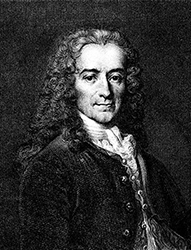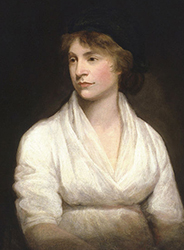Introduction
Renaissance, Scientific Revolution, and Enlightenment
Recalling the learning of the Renaissance that began in Florence, Italy and moved across the European continent, the Reformation that followed, and with it, the Scientific Revolution that you studied in the last two lessons, you might conclude that the learning that was applied to the fine arts, literature, religion and science would spread to other areas despite the problems they might encounter with absolute rulers who might not want to hear some of what they had to say. Look at the diagram below:

Does it help you to see these cause-and-effect relationships in a flow chart? The one here is abbreviated or shortened but it helps you to understand that Renaissance thinking brought about other significant events.
Renaissance
Think about it this way: the Renaissance occurs, and the learning that grows within the Renaissance sparks greater interest and thought into areas like
- religion, causing the Reformation, Counter-Reformation and Wars for Religion ;
- science, causing the Scientific Revolution – a huge step in understanding our universe;
- exploration, causing the Age of Discovery with its conquistadores and colonization.
Enlightenment
And, of course, as you can imagine, the effects of the growth of learning did not stop there. Another period of learning occurred that focused on other issues. It was known as the Enlightenment. During the Enlightenment, intellectuals called Philosophes, explored the problems within society and government through their discussion and writings. Many were satirists writers who used wit and sarcasm to criticize but all wanted to reform society and government.



Enlightenment thinkers
As you will notice as you study, most of the most famous Enlightenment thinkers we will study were French; however, there were many others from other nations who are remembered for their contributions to the Enlightenment period and future generations. Where did they meet to talk about the issues of the day? In salons run, for the most part, by women. Really, for the first time in modern history, women were able to take part in discussions of the issues of the day and have their opinions valued.


Watch these videos to be introduced to the Age of Reason. Be sure to watch all of these all the way to the end.
Open Enlightenment - Rousseau in a new window
Note: The presentation may take a moment to load.
Open Enlightenment - Montesquieu in a new window
Note: The presentation may take a moment to load.
Open Enlightenment - Voltaire and More in a new window
Note: The presentation may take a moment to load.
|
Lesson Objectives
Following successful completion of this lesson, students will be able to:
The above objectives correspond with the Alabama Course of Study: World History: 1500 to the Present Objective(s): 6. This lesson incorporates the following Literacy Standard(s): |
